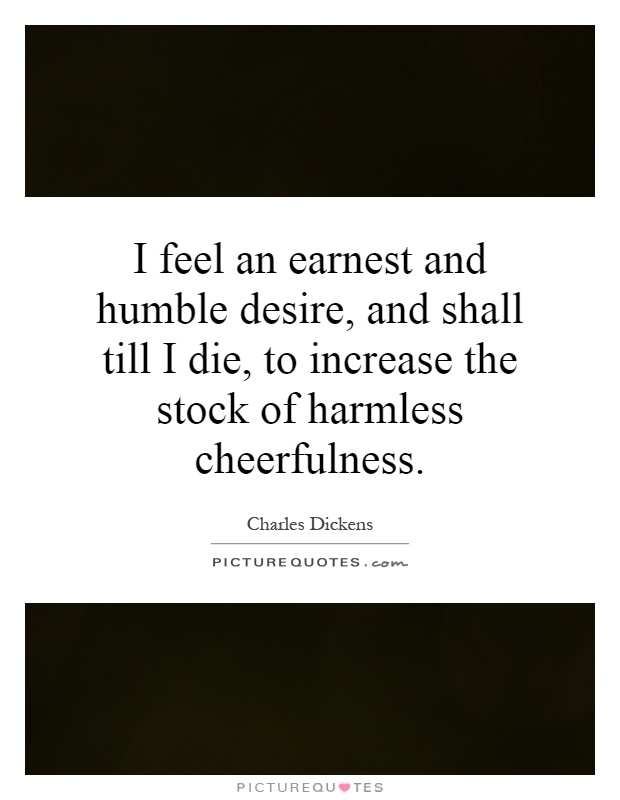I feel an earnest and humble desire, and shall till I die, to increase the stock of harmless cheerfulness

I feel an earnest and humble desire, and shall till I die, to increase the stock of harmless cheerfulness
Charles Dickens, the renowned Victorian author, was known for his ability to capture the essence of human emotions and experiences in his novels. One of the recurring themes in his works is the importance of maintaining a sense of cheerfulness and optimism in the face of adversity. Dickens himself once said, “I feel an earnest and humble desire, and shall till I die, to increase the stock of harmless cheerfulness.” This statement reflects his belief in the power of positivity and its ability to uplift and inspire others.Throughout his life, Dickens faced numerous challenges and setbacks, including poverty, personal loss, and social injustice. Despite these hardships, he remained committed to spreading joy and hope through his writing. In his novels, Dickens often portrayed characters who faced difficult circumstances but managed to find happiness and contentment through their resilience and optimism. One of the most famous examples of this is the character of Ebenezer Scrooge in "A Christmas Carol," who undergoes a transformation from a miserly and bitter old man to a generous and joyful individual after being visited by the ghosts of Christmas Past, Present, and Future.
Dickens believed that by increasing the “stock of harmless cheerfulness,” he could make a positive impact on society and help alleviate the suffering of others. His works were not only entertaining but also served as a form of social commentary, highlighting the injustices and inequalities of Victorian society. Through his vivid descriptions and memorable characters, Dickens was able to shed light on the struggles of the poor and marginalized, while also offering a message of hope and redemption.












 Friendship Quotes
Friendship Quotes Love Quotes
Love Quotes Life Quotes
Life Quotes Funny Quotes
Funny Quotes Motivational Quotes
Motivational Quotes Inspirational Quotes
Inspirational Quotes